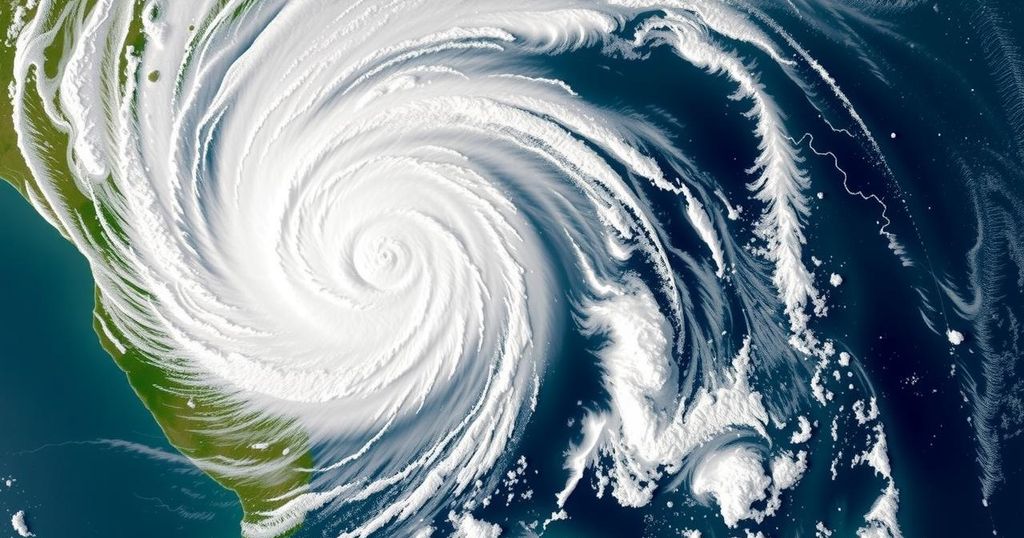Tropical Cyclone Chido has caused significant devastation in the southwestern Indian Ocean, particularly affecting Mayotte and Mozambique. The storm has led to 22 confirmed deaths in Mayotte, with expectations of more casualties. In Mozambique, at least 34 people died, and thousands of homes were destroyed. France has implemented a curfew and is sending aid, while the U.S. is prepared to assist. The cyclone has disrupted political protests in Mozambique due to the accompanying damage.
Rescue operations are underway following the devastation caused by Tropical Cyclone Chido, which has impacted numerous islands in the southwestern Indian Ocean. As of Tuesday morning, Mayotte, the French territory that suffered the most extensive damage, reported 22 fatalities and 1,400 injuries. Local officials anticipate that the death toll could rise significantly due to the severity of the storm, which is being described as the most calamitous to strike the region in almost a century.
In response to the catastrophe, France has implemented a curfew from 10 PM to 4 AM, and President Emmanuel Macron is scheduled to visit Mayotte shortly, where he will declare a national day of mourning. The U.S. State Department has also expressed readiness to provide assistance. Interior Minister Bruno Retailleau, having arrived in Mayotte, described the island as “totally devastated,” as the nation mobilizes hundreds of military personnel and first responders to aid in recovery efforts.
Cyclone Chido formed between December 7 and 8, affecting the Agalega Islands before gaining strength north of Madagascar. It made initial landfall in Agalega at speeds exceeding 200 kilometers per hour, resulting in significant infrastructure damage, although the Prime Minister of Mauritius confirmed that no casualties occurred there. As Chido moved on, it severely impacted Mayotte, where many residents occupy vulnerable shantytowns with insufficient protection against fierce winds.
The cyclone further struck northern Mozambique on December 15, bringing torrential rains that led to at least 34 fatalities and the destruction of over 35,000 homes. Preliminary assessments from Mozambique’s disaster management authorities confirm the widespread devastation. Although the cyclone is dissipating as it moves toward Zimbabwe, its impact continues to reverberate across the affected regions, exacerbating existing political instability in Mozambique, particularly in the wake of protests against perceived electoral fraud. The opposition leader has postponed demonstrations that were to take place in light of the disaster, waiting until later this month for further developments on the election results.
Tropical Cyclone Chido has emerged as one of the most significant natural disasters in the southwestern Indian Ocean in nearly a century, devastating the territories of Mauritius, Mayotte, and Mozambique. The storm developed rapidly, affecting numerous communities across these regions and eliciting urgent responses from governments and international organizations. The aftermath of the cyclone not only presents immediate humanitarian challenges but also adds layers of complexity to the political landscape in Mozambique, already fraught with tension due to allegations of electoral misconduct.
In conclusion, Tropical Cyclone Chido has resulted in widespread loss of life and extensive infrastructural damage across several islands in the Indian Ocean. With a rising death toll and ongoing recovery efforts, the situation remains dire, particularly in Mayotte and Mozambique, where government responses will be critical. The cyclone’s impact is not only a humanitarian crisis but also a political one, as Mozambique grapples with the fallout from recent controversial elections. Efforts to assist those affected will be vital in the coming weeks as the focus shifts to recovery and rebuilding.
Original Source: www.bnnbloomberg.ca







